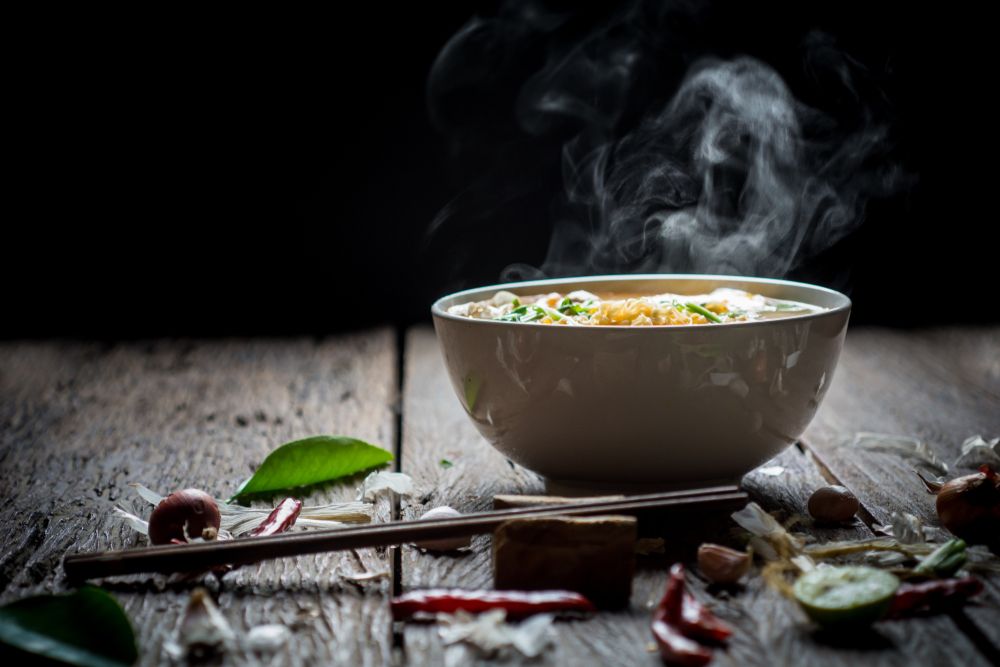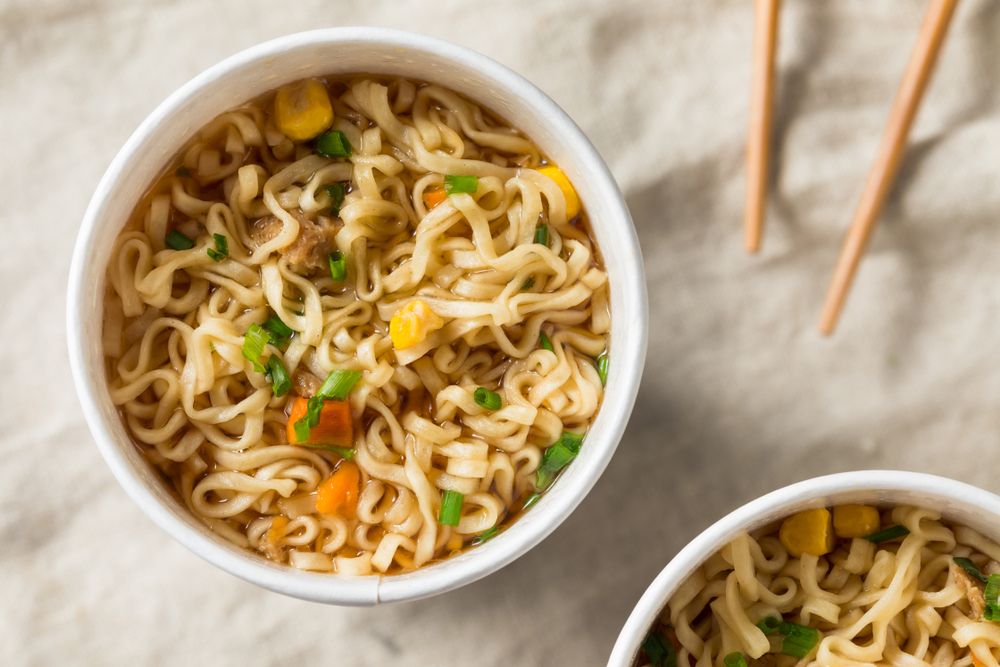
Ramen is undeniably delicious, but instant varieties often lack nutritional value and can contain numerous questionable ingredients. However, there are packaged options that minimize these additives without sacrificing taste. Ramen enthusiasts will appreciate knowing which instant ramen noodles are the healthiest and which to avoid. With the help of a nutritional expert, we've compiled this information.
How We Chose the Healthiest Instant Ramen Noodles
To guide you in shopping for the best healthy ramen noodles, registered dietitian Catherine Gervacio, RDN, a contributor to Living.Fit, provided these five benchmarks:
Made from Whole Grain or Whole Wheat Flour: "Healthy ramen noodles can be made from whole grain or whole wheat flour," says Gervacio. "These provide more fiber and nutrients compared to refined flour noodles."
Contains Dehydrated Vegetables: These add fiber, vitamins, and minerals to the meal, enhancing its nutritional value.
Relatively Low in Sodium: Ideally, the sodium content should be less than 600 milligrams per serving, according to Gervacio, as high sodium intake is linked to various health issues.
Relatively Low in Calories: Lower-calorie options help maintain a balanced diet.
Low in Fat: "The fat content of unhealthy instant ramen can raise cholesterol levels and contribute to heart disease," Gervacio notes. "Avoid ramen products with high levels of saturated and trans fats."
With these criteria in mind, Gervacio helped us identify the best healthy instant ramen options and the ones to avoid. Read on for our top picks, and for more, don't miss "I Tried 8 Instant Ramen Brands & the Best Was Rich & Creamy."
Immi Spicy 'Beef' Ramen
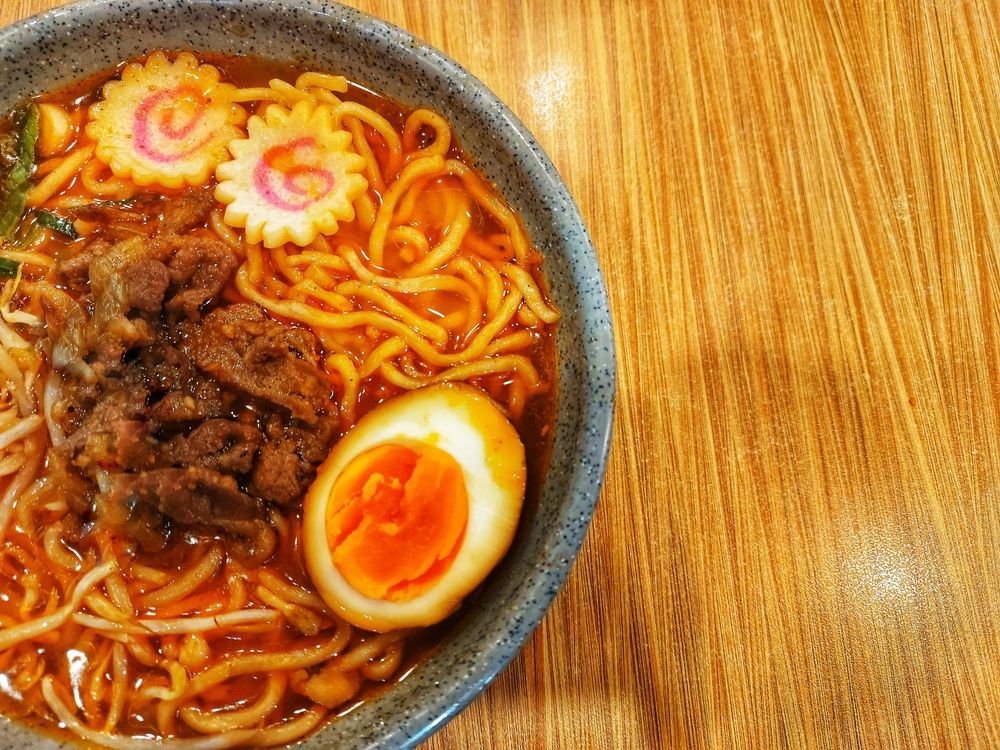
NUTRITION (PER 1 PACK):
CALORIES: 300
FAT: 14 g (Saturated Fat: 7 g)
SODIUM: 890 mg
CARBS: 24 g (Fiber: 19 g, Sugar: 1 g)
PROTEIN: 21 g
Immi's Spicy "Beef" Ramen stands out as one of the healthiest options on store shelves due to its moderate sodium level and impressive nutritional profile, including over 20 grams of protein and 19 grams of fiber. That's 67% of your daily recommended intake of fiber! Additionally, Gervacio notes that 300 calories is a good number for those watching their weight, making this ramen a balanced meal choice.
Lotus Foods Organic Millet & Brown Rice Ramen Noodles with Red Miso Soup
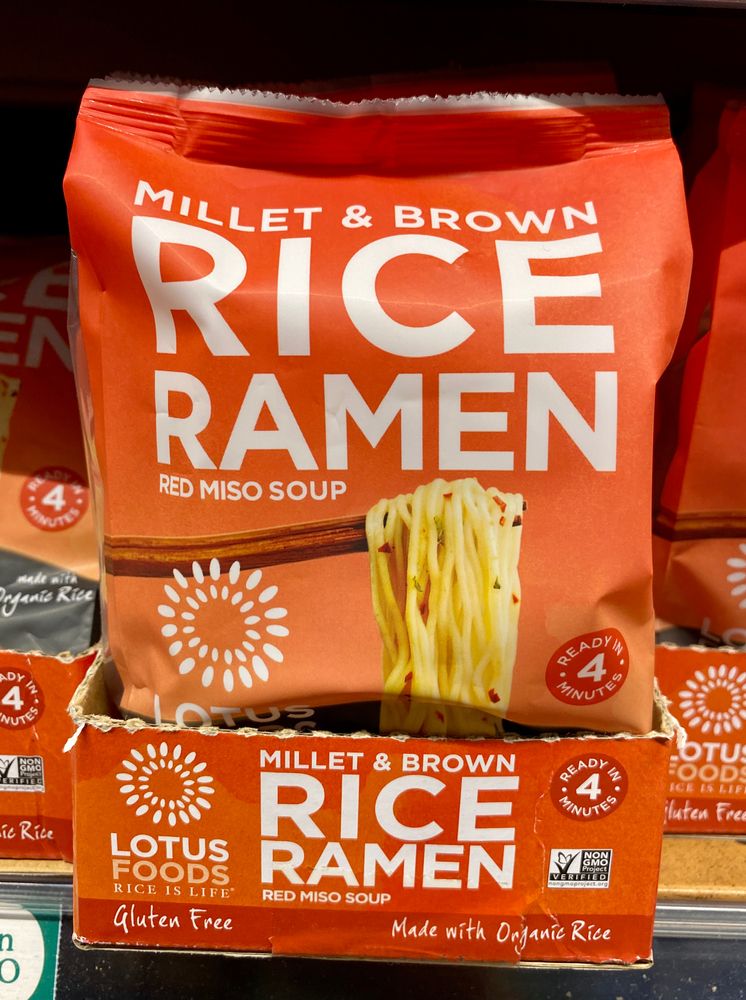
NUTRITION (PER 1/2 PACK):
CALORIES: 140
FAT: 1.5 g (Saturated Fat: 0 g)
SODIUM: 590 mg
CARBS: 25 g (Fiber: 2 g, Sugar: 5 g)
PROTEIN: 10 g
Lotus Foods Organic Millet & Brown Rice Ramen with Red Miso Soup "is excellent for those seeking gluten-free alternatives," says Gervacio. The noodles in this ramen are made from specialty brown rice, which a study published in the February 2013 issue of Critical Reviews in Food Science and Nutrition found to be healthier than white rice. Gervacio explains that this ramen has low sugar, carbohydrate, and fat content, though the protein content is somewhat low. To enhance its nutritional value, she suggests adding a serving of lean proteins and vegetables, given its low fiber content.
ZENB Ramen Noodles
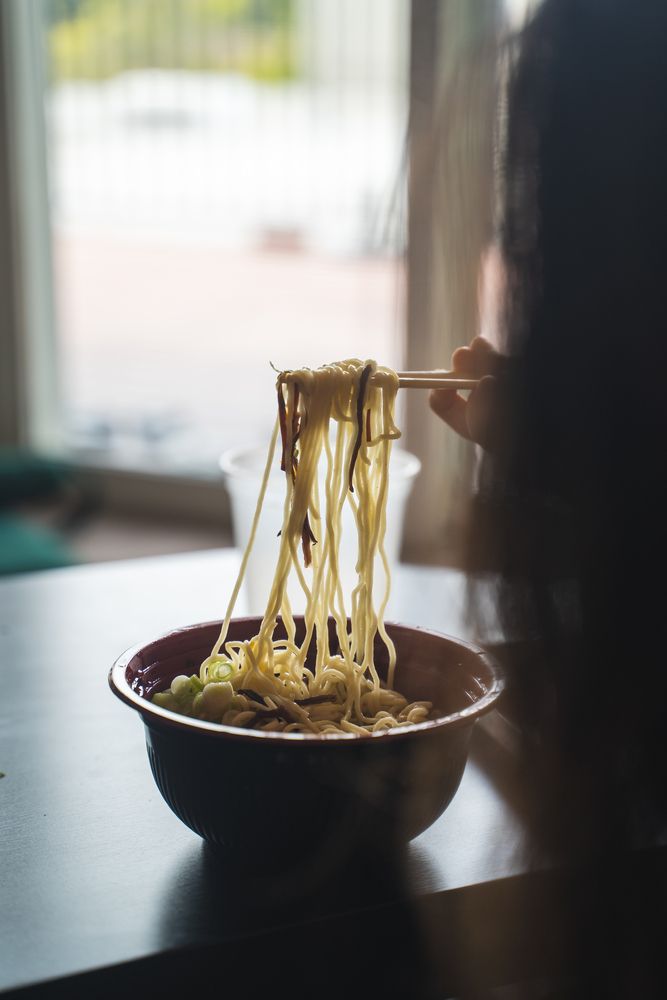
NUTRITION (PER 1 PACK, SPICY MISO):
CALORIES: 360
FAT: 5 g (Saturated Fat: 1 g)
SODIUM: 880 mg
CARBS: 61 g (Fiber: 12 g, Sugar: 7 g)
PROTEIN: 18 g
ZENB Ramen noodles are made from 100% yellow peas instead of refined flour, resulting in instant ramen packed with 18 grams of protein and 12 grams of fiber. Each pack comes with a packet of umami-rich broth in three flavors: Spicy Miso, Shoyu, and Vegan Tonkotsu.
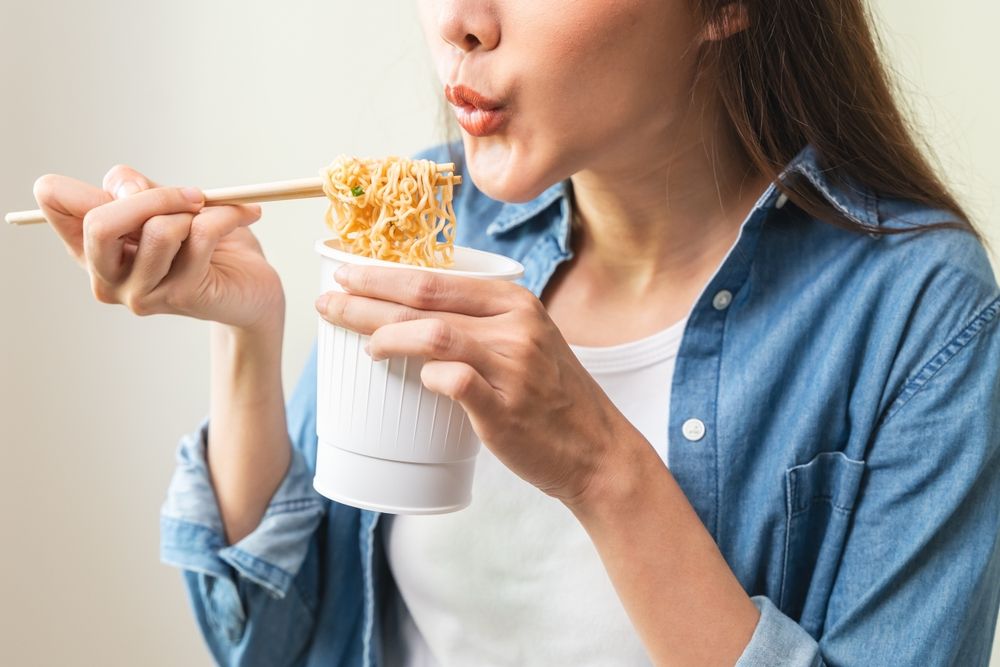
NUTRITION (PER 1 PACK):
CALORIES: 300
FAT: 7 g (Saturated Fat: 3 g)
SODIUM: 720 mg
CARBS: 42 g (Fiber: 6 g, Sugar: 7 g)
PROTEIN: 17 g
"These noodles offer a different and healthier take on wheat-based ones," says Gervacio when discussing WhatIf Foods BAMnut Noodles. Often seen in Asian noodle dishes, a study published in the August 2018 issue of Cereal Chemistry noted that whole wheat noodles can provide both a satisfying eating experience and nutritional benefits. Gervacio adds, "These are good options for those with certain gluten sensitivities. They are also vegan-friendly, which means they contain no cholesterol. Additionally, they have lower sodium content than Immi."
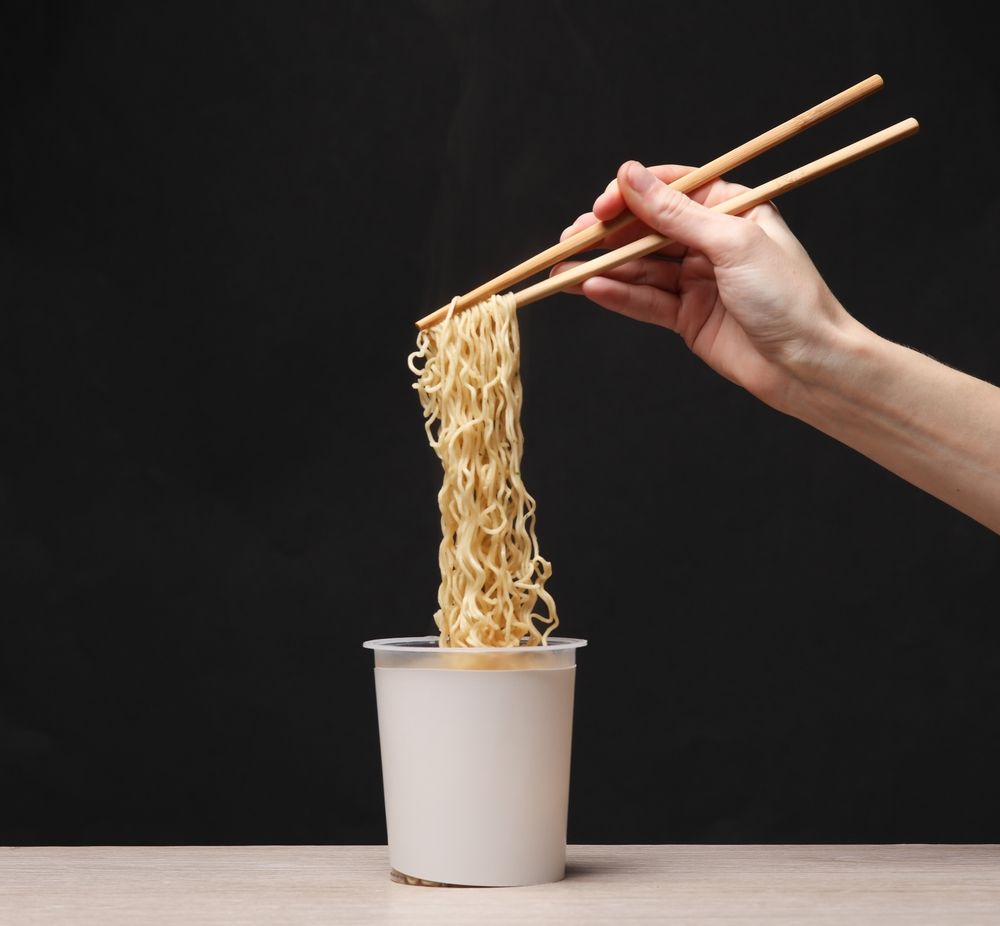
NUTRITION (PER 1 PACK):
CALORIES: 290
FAT: 3 g (Saturated Fat: 0.5 g)
SODIUM: 1,510 mg
CARBS: 58 g (Fiber: 2 g, Sugar: 7 g)
PROTEIN: 10 g
Gervacio notes that among the healthier options, Public Goods Original Ramen Noodles "has the highest sodium content of 1,510 milligrams per serving, which accounts for 66% of the total recommended daily intake," according to the United States Food and Drug Administration (FDA). However, she also points out that it "has a reasonable number of calories," is "low in fat," and includes protein as well as "moderate carbohydrates," making it still a better choice than the worst options on this list.
Vite Ramen
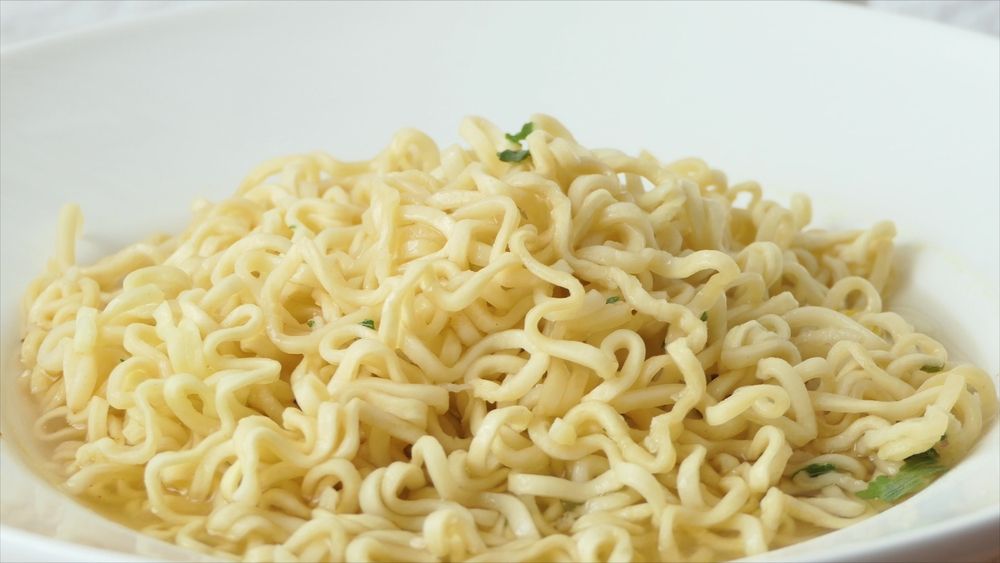
NUTRITION (PER PACKAGE, MASSAMAN CURRY):
CALORIES: 450
FAT: 8 g (Saturated Fat: 1.6 g)
SODIUM: 1,166 mg
CARBS: 68 g (Fiber: 7 g, Sugar: 2 g)
PROTEIN: 26 g
Vite Ramen offers a healthy indulgence with an impressive 26 grams of protein and 7 grams of fiber per serving. While it does contain 1,166 milligrams of sodium, this is still lower than many other ramen brands.
Worst: Nissin Top Ramen Soy Sauce Flavor
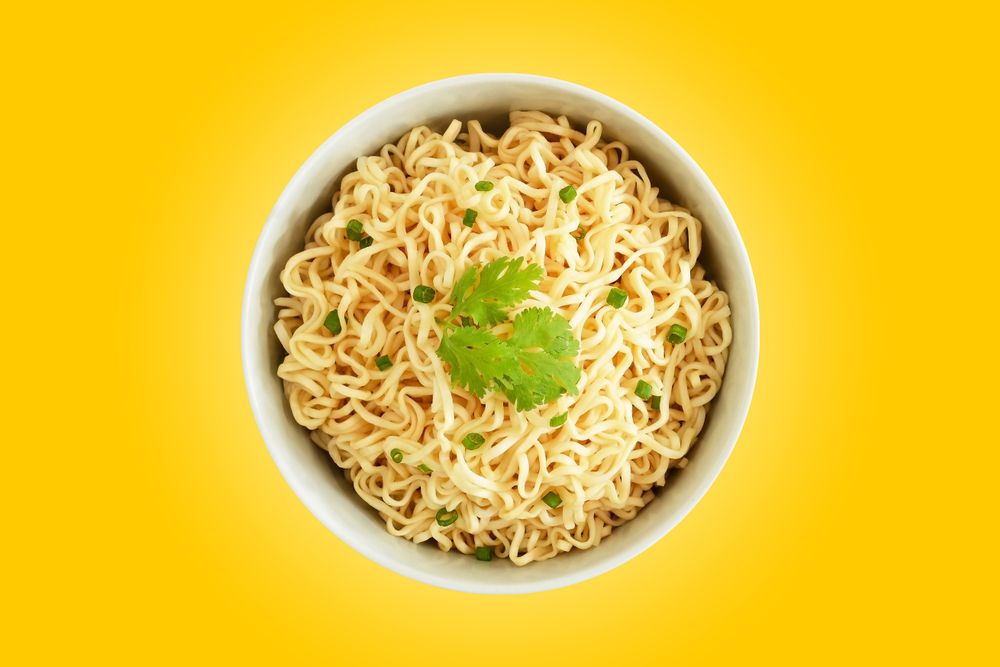
NUTRITION (PER 1 PACK):
CALORIES: 380
FAT: 14 g (Saturated Fat: 6 g)
SODIUM: 1,620 mg
CARBS: 53 g (Fiber: 2 g, Sugar: 0 g)
PROTEIN: 9 g
Nissin Top Ramen Soy Sauce Flavor is suitable for vegetarians and claims to have reduced sodium content and no added MSG. However, it still contains a significant amount of sodium at 1,620 milligrams. Additionally, with 380 calories per serving, it has more calories than a McDonald's cheeseburger (300 calories), a Subway Veggie Delite® wrap (330 calories), and a Chalupa Supreme® from Taco Bell (360 calories).
Worst: A-Sha Meteor Noodles with Braised Beef Sauce
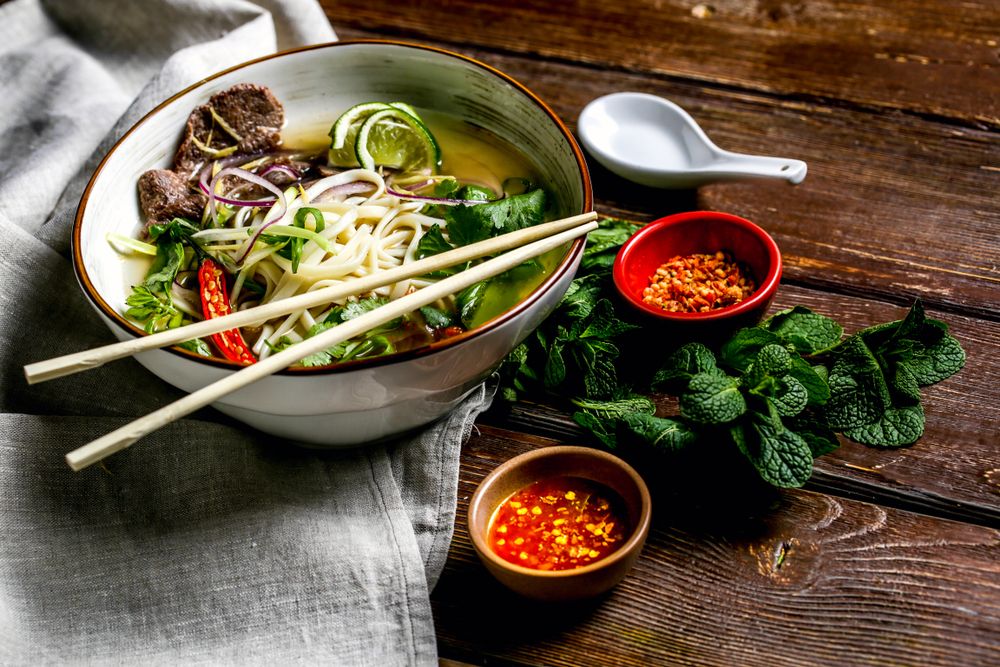
NUTRITION (PER 1 PACK):
CALORIES: 390
FAT: 9 g (Saturated Fat: 4 g)
SODIUM: 2,000 mg
CARBS: 65 g (Fiber: 3 g, Sugar: 6 g)
PROTEIN: 12 g
A-Sha Meteor Noodles with Braised Beef Sauce boasts "a one-of-a-kind ramen noodle" that aims to "elevate your ramen experience." However, it comes with 390 calories and a whopping 2,000 milligrams of sodium, making the salty content of Meteor Noodles and Braised Beef Sauce sky-high, and not in a good way.
Worst: Myojo Premium Shio Tonkotsu Ramen
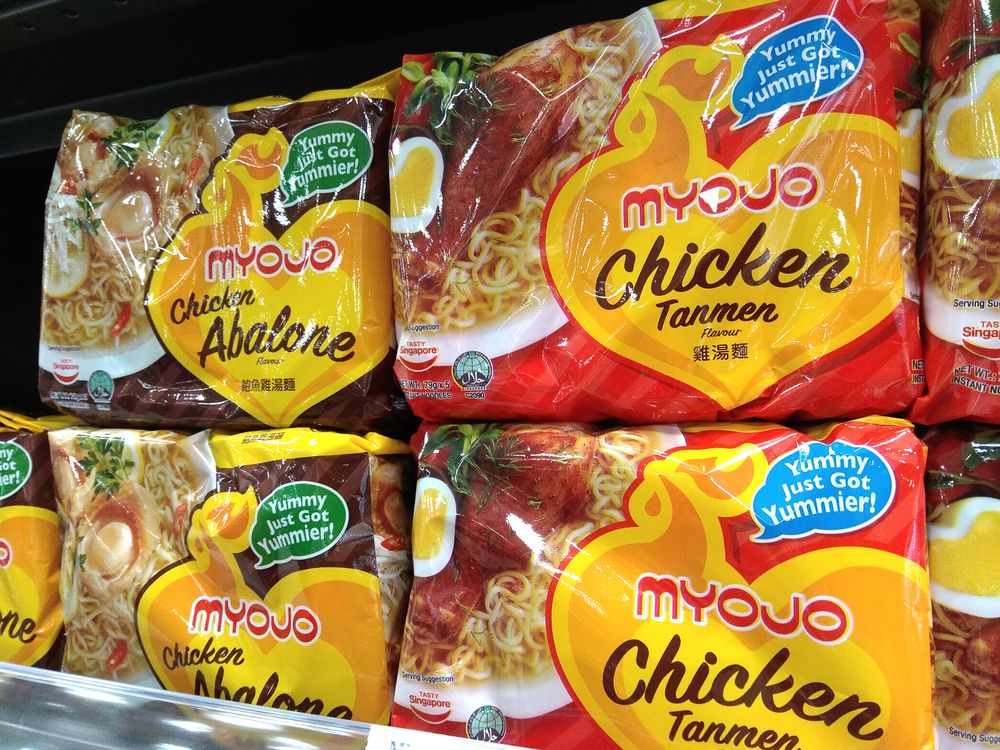
NUTRITION (PER 1 PACK):
CALORIES: 400
FAT: 7 g (Saturated Fat: 2 g)
SODIUM: 3,150 mg
CARBS: 67 g (Fiber: 2 g, Sugar: 3 g)
PROTEIN: 12 g
Myojo Premium Shio Tonkotsu Ramen features a creamy pork broth and toppings like chashu, kikurage mushroom, and seasoned bamboo. However, this ramen dish contains 400 calories and an astonishing 3,150 milligrams of sodium, making it far too high in sodium for a single meal, let alone a single ramen dish.
Worst: Sanyo Foods Sapporo Ichiban Shio Ramen
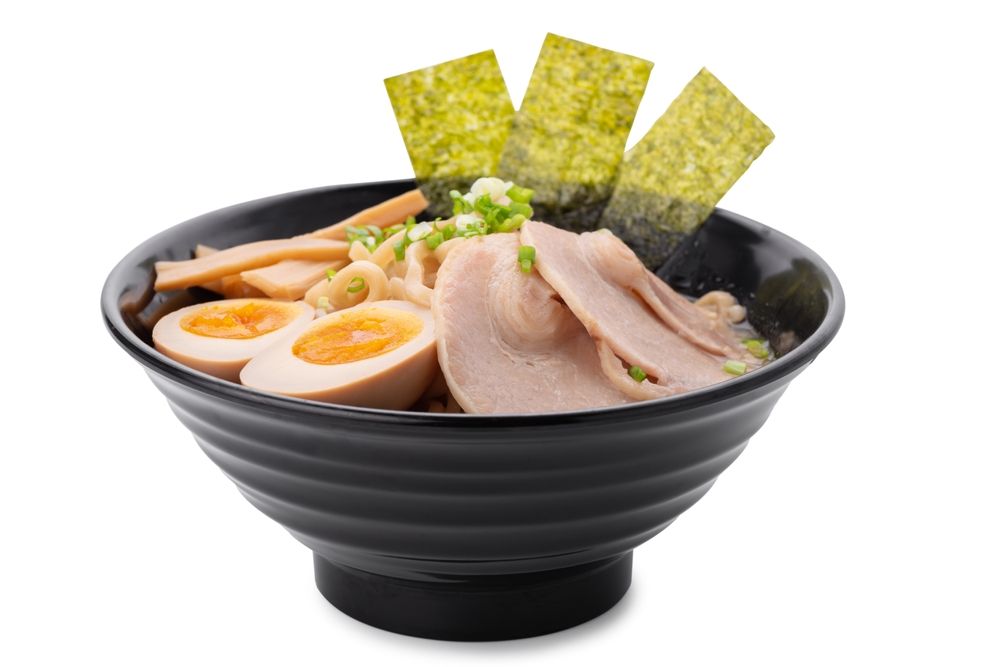
NUTRITION (PER 1 PACK):
CALORIES: 460
FAT: 18 g (Saturated Fat: 8 g)
SODIUM: 2,140 mg
CARBS: 64 g (Fiber: 4 g, Sugar: 3 g)
PROTEIN: 9 g
Sanyo Foods Sapporo Ichiban Shio Ramen tries to win you over with its trans-fat-free formulation and flavor derived from the "natural sweetness and flavor of vegetables" added to its "refreshing clear soup." However, it's important to note that it also contains 460 calories and 2,140 milligrams of sodium.
Worst: Samyang Ramen
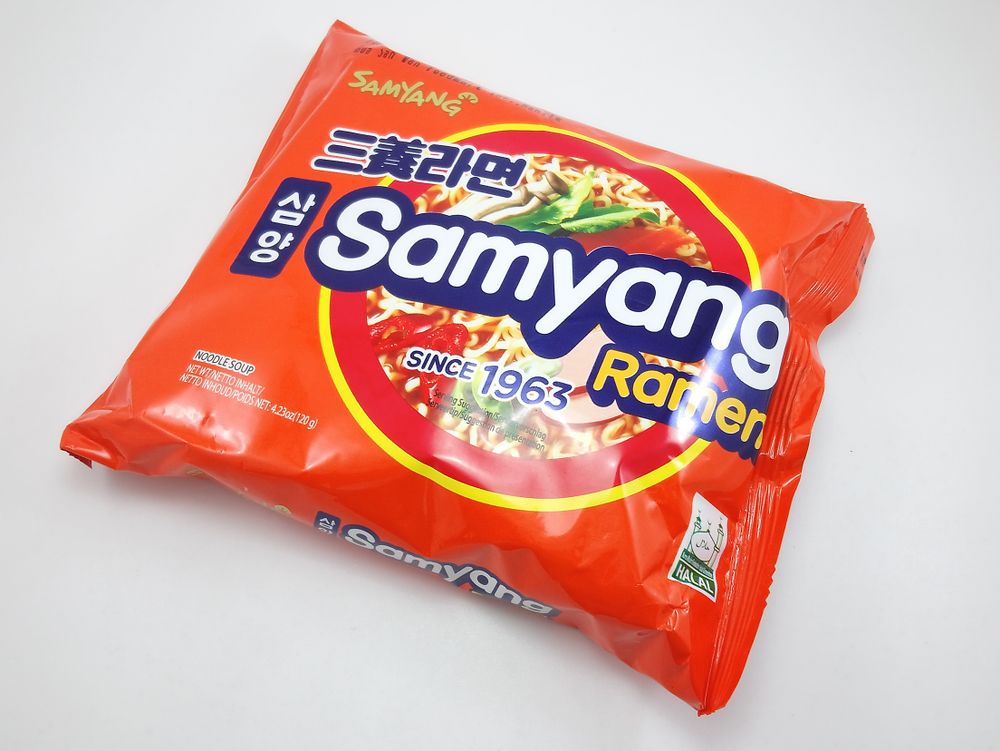
NUTRITION (PER 1 PACK):
CALORIES: 510
FAT: 17 g (Saturated Fat: 9 g)
SODIUM: 1,930 mg
CARBS: 78 g (Fiber: 0 g, Sugar: 5 g)
PROTEIN: 10 g
Samyang Ramen has been delighting fans with its "heartwarming rich broth and deliciously bouncy noodles" since 1963. However, despite its long history, the recipe remains far from healthy, packing 510 calories and 1,930 milligrams of sodium per serving.

